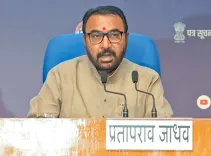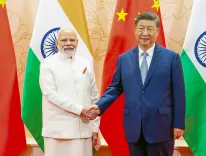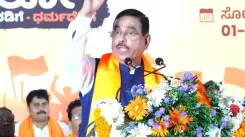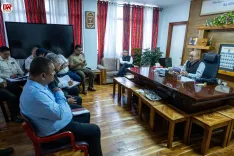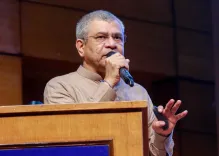Why Did Niva Bupa Suspend Cashless Facility at Max Hospitals?

Synopsis
Key Takeaways
- Niva Bupa has suspended cashless treatment at Max Hospitals.
- Policyholders must pay upfront and file for reimbursement.
- Cashless services remain at over 10,000 partner hospitals.
- Other insurers may face similar suspension issues.
- The suspension raises serious concerns about access to healthcare.
New Delhi, Sep 1 (NationPress) In a significant move that could affect countless patients, Niva Bupa Health Insurance announced on Monday the suspension of the cashless treatment option at Max Hospitals throughout India.
This means that policyholders are now required to pay their hospital bills upfront before seeking reimbursement.
In a statement to IANS, Dr. Bhabhtosh Mishra, Director and COO of Niva Bupa Health Insurance, mentioned that the company’s contract with Max expired in May 2025.
Discussions regarding premium adjustments did not yield an agreement, resulting in the cashless service suspension.
“We recognize that cashless options are also unavailable at Max Hospitals for Star Health and Care Health for various reasons. We want to inform you that our cashless services at Max Hospitals are currently not accessible,” stated Mishra.
He also noted that insurers like Star Health and Care Health are facing similar challenges with Max Hospitals.
“Our contract with Max expired in May, and although tariff revision discussions—an annual procedure—have been ongoing, we could not reach a mutually agreeable solution. Consequently, cashless services at Max Hospitals have been temporarily halted,” Mishra elaborated.
Niva Bupa indicated that this action was taken after “exhausting all other options” and cited administrative and procedural difficulties in its relationship with the Max Group of Hospitals.
The company reassured policyholders that treatments at Max Hospitals would continue, albeit only on a reimbursement basis.
Simultaneously, the insurer reminded customers that cashless services remain available at over 10,000 partner hospitals nationwide.
Max Hospitals has yet to provide a comment.
This issue extends beyond Niva Bupa. Policyholders of Bajaj Allianz General Insurance and Care Health Insurance may also lose cashless access at various hospitals starting September 1, following significant concerns raised by the Association of Healthcare Providers (India) (AHPI) regarding the suspension of cashless services at multiple hospitals.
There were reports suggesting that AHPI has issued an advisory to revoke the suspension of cashless services for these policyholders; however, no official confirmation from the association has been received.
The General Insurance Council (GI Council), which represents insurers, criticized the association’s actions, labeling them as sudden and unilateral, which could lead to confusion and undermine public confidence in health insurance.
The Council warned that disruptions in cashless services negatively impact citizens, forcing them into substantial upfront payments and could even jeopardize lives in critical medical situations that demand immediate treatment.
These developments arise amidst the insurance regulator IRDAI advocating for 100% cashless treatment across India.
While insurers must adhere to IRDAI's stringent regulations, hospitals are not governed in the same manner, which limits the regulator’s capacity to intervene.
As hospital treatment costs have surged in recent years, such disputes threaten to make quality healthcare increasingly inaccessible to the general public.

